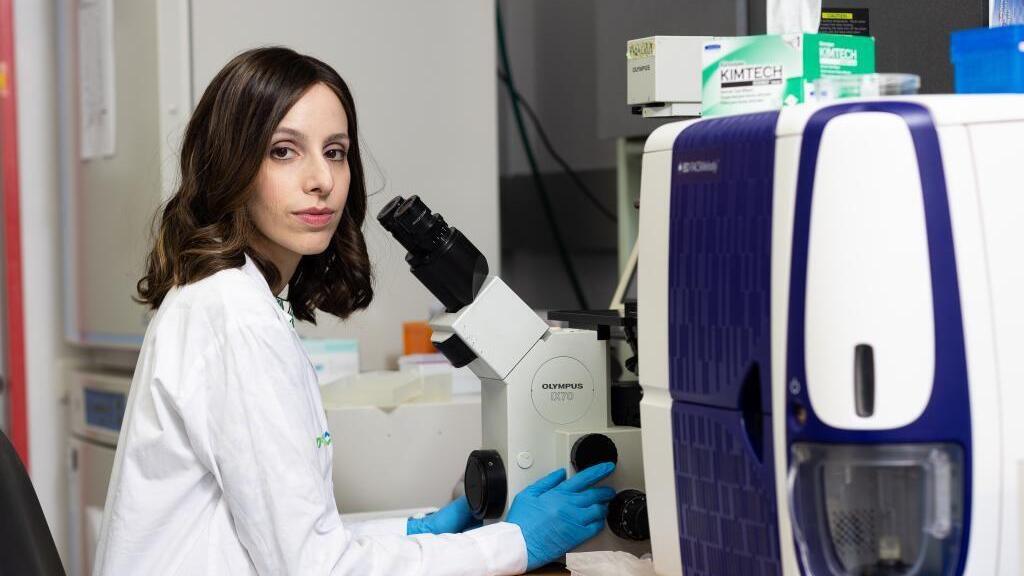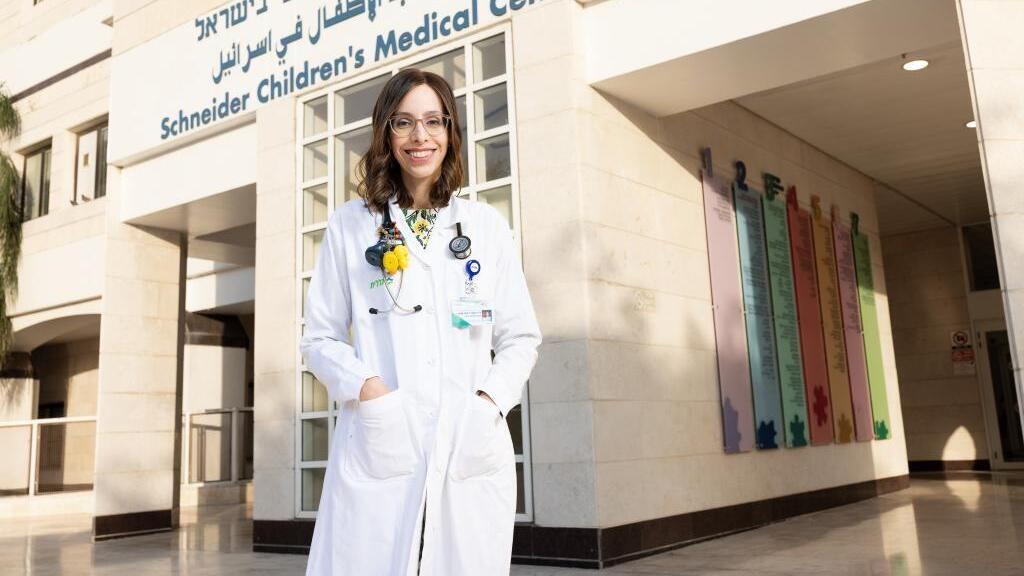New York native Dr. Esther Berko and her physician husband immigrated to Israel in 2020 and settled in the West Bank settlement of Efrat with three of their children. A fourth baby joined the family since then.
Read more:
She took a position as an oncologist specializing in research and genetic profiling at Schneider Children's Medical Center in Petah Tikva while her husband began working as a radiologist at Shaare Zedek Medical Center in Jerusalem.
“I’ve lived in New York all my life,” she says. "I also studied medicine there. My little sister immigrated to Israel about 20 years ago, after which my parents also made Aliyah. My mother is the most Zionist woman in the world, from whom I received the love of Israel. My father was an internist, and when he was going to visit patients in the hospital, he would take me and my sisters, so as a child I saw how a doctor could affect another person's condition, and that was like magic to me. All my life I knew I wanted to study medicine and become a doctor like my father. In medical school, I chose to treat children with violent cancer.”
A very tough choice.
"Someone has to do the job, right? I have always loved pediatrics, and oncology is an area that has a strong personal touch and a deep connection with families. It also incorporates genetic sequencing research. The goal is that we can do genetic sequencing for all tumors and adapt accurate treatment for each patient. We don’t know how each child will respond to the treatment they receive. Neuroblastoma is a very common tumor in children, and some patients do not respond to treatment. Our challenge, the doctors and researchers, is to study the subject and build better treatment protocols.”
Dr. Esther Berko is determined to find a cure for neuroblastoma, an aggressive cancer that primarily affects infants and children up to the age of five. "We have made significant progress in other areas," she says. "For example, in the fight against leukemia. Fifty years ago, children did not survive this disease, nowadays, 90% of children recover, which is amazing. There is also much to be done in the field of neuroblastoma, and for me, it is a mission that I see as a tremendous privilege."
Her schedule is very busy. Her work is demanding, and alongside the professional challenges, she is a wife and mother of four children. "Work definitely affects me and my outlook on life. I often took care of a sick child, with all the struggles involved, and then I went home to my healthy child, who is the same age, and it makes you take health and joy as not self-evident."
Do your children understand the importance of your work? Do they talk about it?
"All the time. They understand what I do, and this exposure enriches their perspective of life. They hear about very sick children and understand that we need to think about others and open our hearts. It is a value that is the foundation of our life. As parents, it’s also a very important thing for us.”
After two and a half years in the country, how do you sum up your stay here?
“People here don’t really understand what we’ve done. Doctors keep asking me why I'm here. My husband and I worked in a hospital that is one of the best in the United States, my husband was getting promoted to head of a department, and we lived in a place we loved, surrounded by friends – and yet, we both knew our place is here in Israel. Solely Zionism is what drove us to make Aliyah in the middle of the COVID-19 pandemic. We see the State of Israel as a miracle, understand its place and its significance, and know that this is our future. We wanted to participate in the construction of the state, to contribute, to be part of it, not to stay aside, despite the mess in the country.”
How do you see Israeli medicine compared to American medicine?
“I think it is pretty much the same. It is very rare that certain treatments are not available here. However, the medical support system is slightly different in Israel: In the United States, there are many more nurses, coordinators, and secretaries. There is also a shortage of doctors, and that has to change. But I don’t like to talk about the problems in Israel, because there are problems there too. What is special here are the people. There are very good people here who will dedicate their heart and soul to work and manage to cope with far fewer staff. It’s a great joy for me to be a part of it.”



